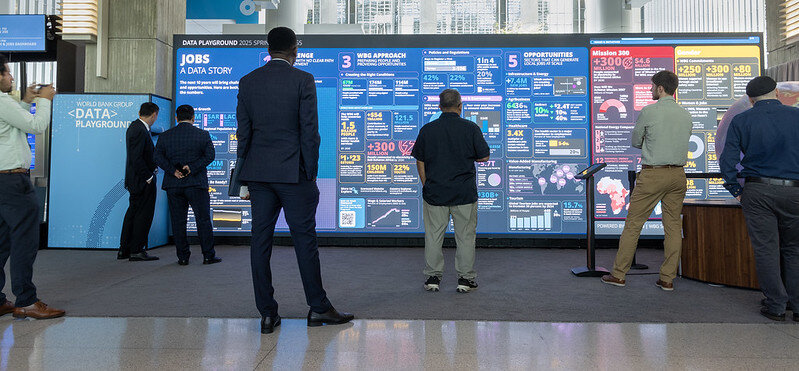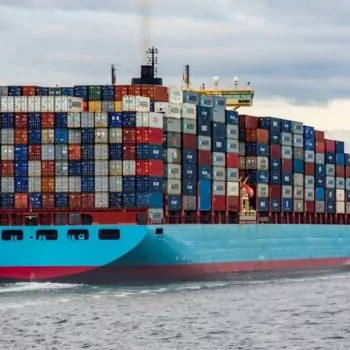The global economy has changed, and so have previous geopolitical certainties. However, the underlying rationale remains strong for transitioning to a clean, resilient economy. As recent international finance gatherings show, we are entering a disruptive new era, which also offers opportunities to move fast and build new action coalitions.
Recent global meetings on economic reform and development finance—held in Washington D.C. for the IMF and World Bank Spring Meetings, and in New York to prepare for the UN’s upcoming 4th Financing for Development Summit (FfD4)—revealed both tensions and potential for progress. Countries demonstrated a growing recognition that existing frameworks and lending practices must adapt to new economic and political realities.
One sign of this shift is the launch of the Circle of Finance Ministers by the incoming Brazilian COP30 Presidency. This group is tasked with advising on the “Baku to Belém Roadmap to USD 1.3 trillion”—which aims to set out the pathway for mobilising international finance at the scale needed to developing countries. The initiative will consider interventions across multilateral development bank (MDB) reform, concessional finance, country platforms, private capital mobilisation, and financial regulation. The group responds to a desire, especially from Global South nations, for more inclusive and representative financial dialogue than traditional forums offer.
Shrinking aid budgets in conventional donor economies mean that development institutions must do more with less, and geopolitics are not helping. In Washington, divisions among IMF and World Bank shareholders and uncertainty over the approach of the US administration loomed over proceedings. The G20 finance ministers were unable to issue a joint communiqué, reflecting divergent policy priorities and ongoing geopolitical fractures.
Whilst the US set out its intention to remain at the IMF and World Bank, its positioning could have implications for their climate policies. It will be important for a broad coalition of countries work together to ensure the IMF continues to incorporate growing and real climate risks into its agenda; and to consider how the World Bank can respond to calls for a more “technology neutral” energy policy without rolling back previous progress to enable clean and resilient growth in developing economies.
Nevertheless, within every crisis lies the potential for new opportunities.
As we approach the June FfD4 Summit in Seville, Spain, the UN will host intensive negotiations among countries regarding the role of the Summit’s outcome document, which will serve as a reflection of the current state of affairs in the international order including in relation to international development finance. In addition, the UN has set up a “Sevilla Platform for Action” to mobilise voluntary initiatives from coalitions of willing partners committed to concrete action, even if the outcome document fails to meet their ambitions.
Themes of adaptation, resilience, and risk mitigation are no longer confined to climate negotiations under the UNFCCC but are now well-established in more traditional financial spaces, reflecting the increasing macro-criticality of climate change. For reform-minded actors at the IMF, deepening the analytical basis for climate risk in macroeconomic assessments could strengthen the case for sustained engagement and institutional reform.
While the global order is becoming increasingly multipolar, certain countries are stepping up as reform champions. Brazil, South Africa, the EU, Canada, and the UK have the potential to work with others to maintain a forward-looking agenda despite geopolitical headwinds. In this context, progress may depend on the emergence of new coalitions that bridge traditional divides and bring fresh energy to stalled negotiations while also leading to action on the ground.
Energy geopolitics will test these efforts. While some countries continue to prioritize short-term energy security, this is a false trade-off and the overwhelming economic imperative is to build resilience through a structural shift away from fossil dependency and toward diversified clean industries and supply chains.
The road to reform has several milestones ahead. The FfD4 Summit and the UNFCCC Intersessional meetings will offer chances to advance proposals. Then, after the UN General Assembly, the IMF/World Bank Annual Meetings will again bring finance ministers to the table, and finally COP30 in Belém remains a critical endpoint. Other forums, such as the upcoming European Bank for Reconstruction and Development (EBRD) meetings, offer additional opportunities for shareholders to double down on ambition.
Ultimately, progress depends on strategic resolve for long-term economic prosperity. Finance ministers and heads of state must resist stepping back in negotiations and remain focused on key deliverables for COP30: enhanced NDCs, increased financial flows for climate goals, and systemic economic transition. They must be decisive in identifying rapid action initiatives to support and drive as they navigate challenging terrain this year. This is the right way forward to build strong, resilient, growing economies for the future.


